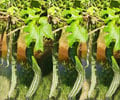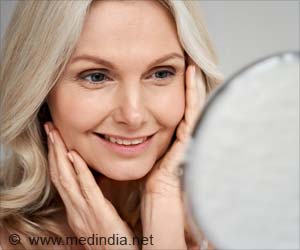Here's a short gist of the different forms and branches of alternative medicines that are most popular as career options.

A number of new schools and universities have now emerged to help aspiring young students gain a good practical knowledge about healing therapies that have originated not only in India, but different parts of the world. Listed below are a few popular branches of complementary and alternative medicinal systems, which one can take up as a career or a profession.
Acupuncture: Acupuncture is one of the most popular branches of complementary medicine, and also one of the most widely applied ones. It relies on the belief that energy of the body flows through channels, which when blocked, can cause disturbance in the system, leading to diseases. Stimulating certain points on these channels (mostly with the help of a needle) balances and corrects the energy flow and brings about well-being.
A degree or a diploma course in acupuncture can help you establish yourself as a practitioner.
Homeopathy: Homeopathy, another widely used therapy, was introduced and implemented upon by the sole belief that ‘like kills like’, which explains why bee and snake venom is used to treat poison ingestion. Dilution practices also play an important role in this field.
Homeopathy is a 5 year bachelor’s degree course in India.
Ayurveda is a 5 and a half year course in India, after which one can start working as a registered practitioner.
Naturopathy can be opted for as both a diploma (1-2 years) and a degree (3 years) course.
Biochemic medicines: Biochemic medicinal practices work on the belief that the body is constituted of 12 tissue salts that are vital for life. A deficiency or excess of any of these salts is what leads to development of disease.
Biochemic medicines can be opted for as a diploma course; however, universities pertaining to this course are not established in India.
Aromatherapy: Aromatherapy, commonly used by patients suffering from sleep disorders like insomnia and narcolepsy, is another amazing field of alternative medicine that is now gaining increased importance. Essential oils extracted from different plants and herbs are thought to stimulate both mental and physical changes, bringing about well being. A recent study even shows that aromatherapy can help reduce weight.
Aromatherapy is a simple 1-2 year diploma course.
Hypnotherapy: Hypnotherapy, sometimes categorized under psychological therapies, is based on the principle that the mind is a flexible muscle. Compelling and transforming the mind by use of hypnosis and self hypnosis techniques is thought to eradicate many health conditions and is even thought to be an effective pain killer.
Hypnotherapy can be done as an online course or as a practical course in most countries.
Magnetic healing: Magnetic healing is a form of energy medicine that makes use of magnetic energy available to change the vibrational frequency of the diseased cells, bringing about well being and removing disease.
Magnetic therapy universities are yet to be established in India.
Source-Medindia









